
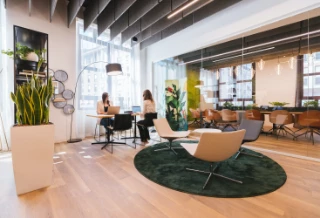
UK Working Habits: Revealed - Who Really Works The Hardest?
Office Freedom recently commissioned a survey, asking 2,000 office workers in the UK about their working habits to uncover patterns and trends and determine what’s in store for the future of office spaces and workforces. Here’s what we found (it might surprise you, too!).
A key finding from the study named Sheffield as one of the hardest-working cities in the UK, along with Norwich, Swansea and Wolverhampton. As a region, London was perceived as less hard working than others.
Key Insights
A summary of the collected information can be seen below:

General Insights
- People in Scotland most at ease with returning to the office full time
- Employees in London feel the most rewarded by their companies
- London most sociable – SW and SE least sociable
- London commuting time the highest

By Age
- Younger ages see Their colleagues more as friends and family than older age
- Younger ages feel more rewarded by companies
- Older ages appreciate the hybrid model more than younger ones
- Younger ages more surprised that hybrid working is only recent

By Gender
- Men tend to work more overtime than women, also when working from home.
- Men also take longer lunch breaks when working from home
- Men have closer relationships to their colleagues
- Females have more of an issue than males with a 5 day office based week
Working habits across cities and regions
The study showed that every city is different when it comes to the way its businesses operate and how its workforce feels about their workplaces and habits in general.
As one of the hardest-working cities, working days in Sheffield tend to be longer, with 83% of respondents from the city working more than their contracted hours. Those in Glasgow enjoy the earliest finishes, and Bristol’s workforce takes the longest lunch break, getting a solid 30 minutes each day.
The average commute time across the UK is under 40 minutes, however, office spaces in London, West Midlands and the South East take the longest to reach. Although, employees in London do feel most rewarded by their companies, and the region also enjoys the most social activity.
Leeds’ workers also believe they are sociable outside of work and take pride in being the most appreciative of staff and colleagues, along with Newcastle. Workers in Leeds also consume the most tea and coffee, averaging four cups a day, while Newcastle firms have been praised for offering the best childcare benefits.
The study also uncovered some interesting and differing trends in working habits across genders, ages and demographics.
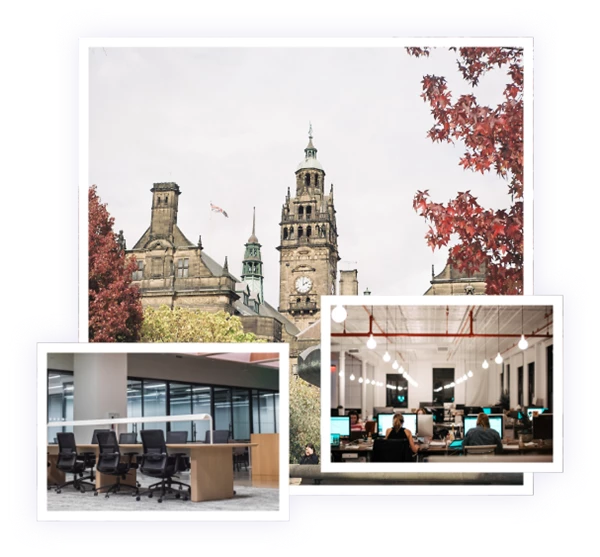
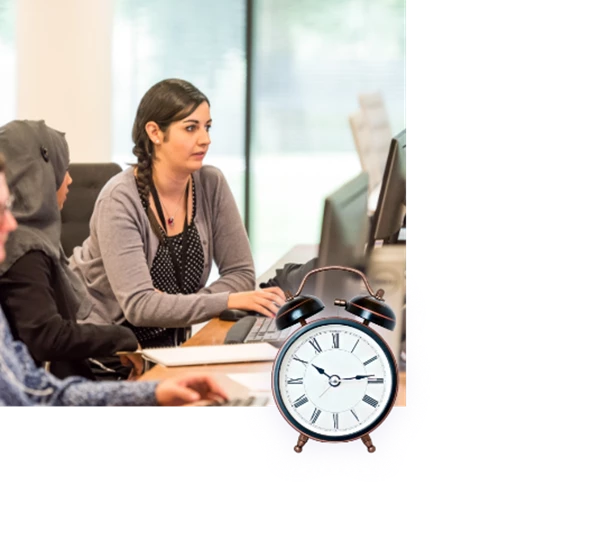
Working hours
Working hours and patterns vary across ages, genders and places of work. Surprisingly, most respondents admitted to working 10 hours or less, with the majority working more than their contracted hours. When working from home, 51% believe they are working more than they did previously in the office, with 49% going over their contracted working day.
Older employees work longer than the younger workforce, however, hours for younger people have increased since working from home. As older employees were already working longer hours, their working days have not increased as much as they have for younger team members. Similarly, men said they work more overtime than women when working from home and the office.
Taking Breaks
With hard work and long hours, it’s also important to look at habits and attitudes towards taking breaks. Interestingly, although people do take breaks, most take less than 30 minutes for lunch.
For 65% of people, lunch breaks have changed while working from home, with a third of all workers now taking longer breaks in the comfort of their own homes. Men take the longest breaks while working from home, and 18-24-year-olds take the shortest, although they are extended when at home, too.
Tea and coffee breaks are also a vital part of the working day. The majority of workers have three cups of tea or coffee a day, which is similar across all age groups. Only 13% of respondents stated that they do not drink tea or coffee at work.

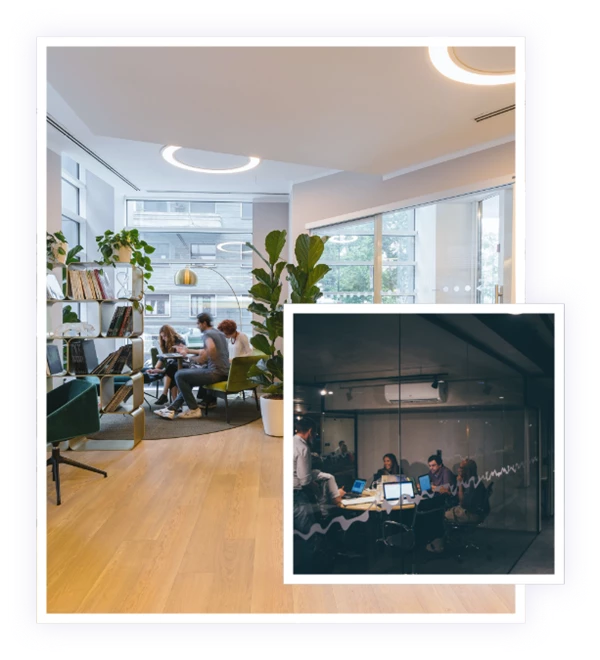
Health and wellbeing
Health and wellbeing at work is a growing area of importance for both employers and employees. Therefore, findings for respondents’ habits and feelings towards their company’s health and wellbeing related initiatives also uncovered some interesting results.
The majority of workers rated their company’s mental health initiatives above average. However, younger people feel their companies offer poorer initiatives for mental health than older age groups.
Health-related benefits are much more appreciated, and regarded as better quality by females than men. This is also the case with environmental and childcare initiatives.
Beyond work
Beyond general working practices, companies often offer an array of other benefits and initiatives to help keep employees engaged, motivated and fulfilled in their roles. The most common types of benefits include environmental initiatives and employee discount schemes. 84% of companies have environmental initiatives and 77% offer their employees discounts for shopping, eating out and other subscription services.
Half of the companies in the study also arrange social events for their teams. The average worker takes part in two of these social events per month, but those aged 45- 64 are the least likely to attend, or be aware of, the social activities on offer.
It’s no surprise that younger employees are most social outside of work, particularly as this group considers its colleagues more like friends and family than older employees do. But, overall, 61% of respondents do not see their colleagues more than twice a month outside of work, 21% enjoy their team’s company at least twice a month and 38% consider their colleagues as friends.

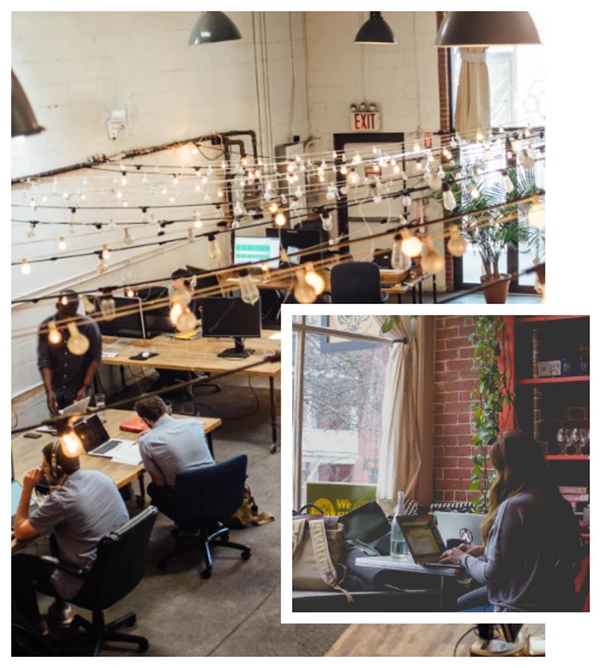
Flexibility is the future
The pandemic has changed the way most of us work. In fact, the majority of companies are now considered flexible, allowing employees to work from home and in the office on a schedule that suits them.
This shift has been on the cusp for a while, but it seems the pandemic gave it the push it needed to move companies into the future of hybrid working. And in most cases, this approach has been well received. 72% of workers have enjoyed working more since the introduction of flexible working at the start of the pandemic, and 66% of workers feel their company has benefited from a hybrid working approach.
Across the workforce, older employees appreciate the hybrid model more than younger groups, and female workers have more of an issue with a five-day office-based week than males. Therefore, the future of working habits in the UK appears to be promoting greater equality, particularly among genders and age groups as both female and older employees’ needs are being catered to.
Looking forward, most people think full-time office work is no longer the norm. Almost a third of workers would be sad if their hybrid working model was scrapped, and a further 20% would feel angry. To reinforce the shift in attitudes, younger aged employees, who will soon form the future of business, are surprised that hybrid working is only a recent change, and 63% of all surveyed are surprised that they used to work in the office five days a week. But if things were to revert, those in Scotland would be most at ease with returning to the office on a full-time basis.
Serviced office space shift
With a flexible working model set to be the future for most businesses, office space needs will also change. The best fit for a flexible working model is a flexible office space, which can be scaled as business needs change. For instance, a fully serviced office space available to rent on flexible terms can provide teams with an inspiring place to meet and collaborate, while also keeping costs low for businesses who can scale back desk space as most members will continue to work from home.
Finally, another key theme to come from the results of the survey is the general feeling of enjoyment most people feel with their jobs and where they work, which is great to see considering the challenges faced in recent years.
Looking for an office space fit for your current and future workforce? Search and compare the entire market with the help of Office Freedom - the flex space specialist. Contact us today.
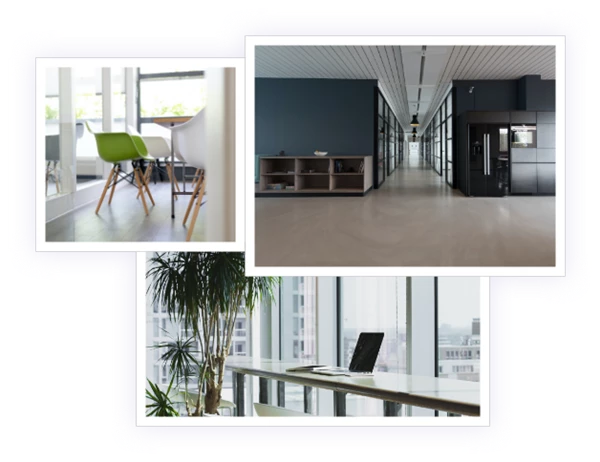
Request a free consultation
Please complete this form and we will contact you to arrange a FREE 15 minute consultation.
Or call +44 203 603 2576 or email [email protected]



